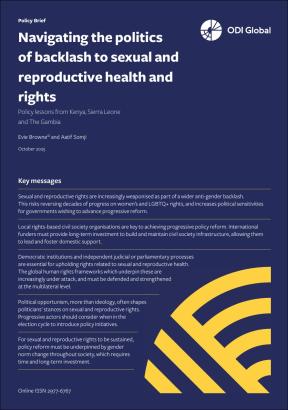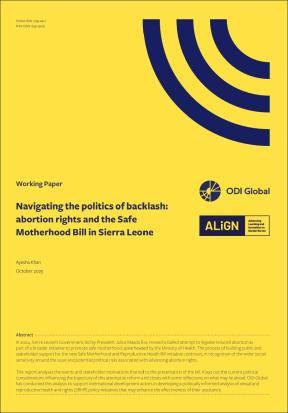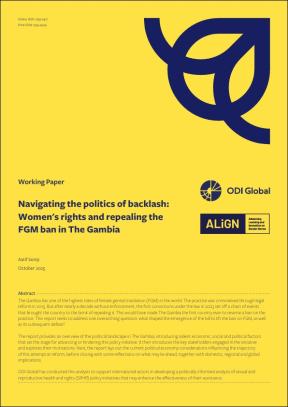- Report
- 1 February 2020
Family, sexuality, and sexual and reproductive health in Cuba: the role of social norms
- Author: Fiona Samuels, Ailynn Torres Santana
- Published by: ODI Global

Globally, today’s cohort of adolescents and young people is the largest ever, and 90% of them live in low- and middle-income countries. This study aims to enhance knowledge and evidence on how best to reach poor and vulnerable persons in developing countries, especially women and girls, by exploring the following research questions within the Cuban context:
- What is the relationship between sexual and reproductive health (SRH) and social norms?
- What is the relationship between women’s economic empowerment and social norms?
- What policies and interventions have been implemented to address SRH, women’s economic empowerment and related social norms?
This report, based on a literature review and interviews with 74 people in two sites in Cuba, presents findings related to SRH. It explores themes including:
- Norms and practices around marriage and relationships
- Norms and practices around adolescents’ and young people’s (sexual) relationships
- Challenges encountered by adolescent girls and young women in relationships, and avenues for recourse
- Parenthood, including living arrangements and returns to education and work for young mothers
- Forms of support: childcare (formal and informal), financial and emotional support
A companion report presents findings related to women's economic empowerment in Cuba.
- Countries / Regions:
- Cuba
Related resources
Policy paper
24 November 2025

Briefing paper
24 November 2025

Briefing paper
5 November 2025
